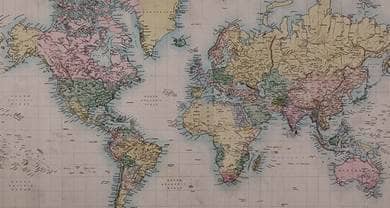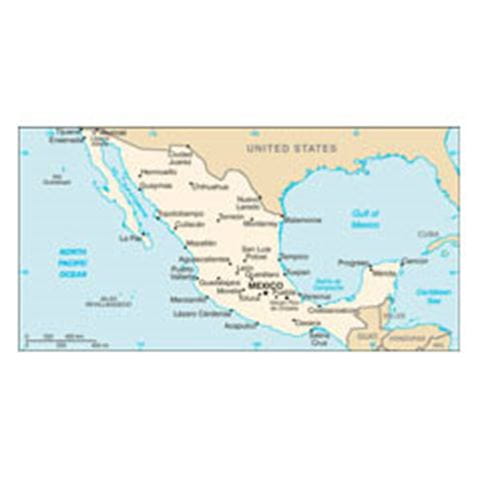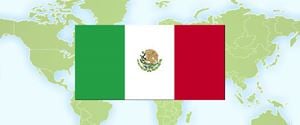- Trending:
- Forgiveness
- |
- Resurrection
- |
- Joy
- |
- Feminism
- |
- Afterlife

RELIGION LIBRARY
Mexico

The country has an area of 1,220,663 square miles and a population of 109 million. According to the Government's 2000 census, approximately 88 percent of respondents identify themselves as at least nominally Catholic. There are an estimated 11,000 Catholic churches and 14,000 Catholic priests and nuns. An additional estimated 90,000 laypersons worked in the Catholic Church. Groups that constitute less than 5 percent of the population include evangelicals (Pentecostals, neo-Pentecostals, and Pentecostal Roots), "historical" Protestants (defined by the Government as Presbyterians, Baptists, Methodists, Nazarenes, Mennonites, and others), Seventh-day Adventists, Jehovah's Witnesses, members of The Church of Jesus Christ of Latter-day Saints (Mormons), Muslims, and Jews.
The General Director for Religious Associations of the Federal Secretariat of Government (GDAR) registered 169 evangelical and traditional Protestant associations. The exact number of evangelical and other Protestant churches and pastors is unknown, and statistics on membership remain scant. Official figures sometimes differ from membership claims of religious groups. For example, the Seventh-day Adventist Church claims a nationwide membership of 600,000 to 700,000 persons; however, in the 2000 census only 488,945 persons identified themselves as such. Also in the 2000 census, 205,229 persons identified themselves as Mormons, whereas Mormons claim membership of approximately 1.2 million. Protestants are concentrated primarily in the south. In the State of Chiapas, 21.9 percent of respondents in the 2000 census identified themselves as Protestant; however, some Protestant evangelical groups claim a much higher percentage. The National Bar of Christian Lawyers reported that in November 2008 they requested that the Interior Secretariat include a category for evangelical Christian in the next census but did not receive a reply.
The Jewish community claims approximately 50,000 members, most of whom live in Mexico City; there are also congregations in Guadalajara, Monterrey, Tijuana, and Cancún. There is a small Shi'ite Muslim population in the city of Torreón, Coahuila and an estimated 300 Muslims in the San Cristobal de las Casas area in Chiapas. Some indigenous persons in the states of Chiapas, Oaxaca, and Yucatán practice a syncretic religion that mixes Catholic and pre-Hispanic Mayan religious beliefs.
In some communities, particularly in the south, there is a correlation between politics and religious affiliation. A small number of local leaders reportedly manipulate religious tensions in their communities for their own political or economic benefit, particularly in Chiapas.
| Population | Population (2009 est.) 111,211,789 |
| Religious Demographics | Roman Catholic 76.5%, Protestant 6.3% (Pentacostal 1.4%, Jehovah's Witnesses 1.1%, other 3.8%), other 0.3%, unspecified 13.8%, none 3.1% (2000 census) |
| Ethnic Groups | Ethnic Groups mestizo (Amerindian-Spanish) 60%, Amerindian or predominantly Amerindian 30%, white 9%, other 1% |
| Languages | Languages Spanish only 92.7%, Spanish and indigenous languages 5.7%, indigenous only 0.8%, unspecified 0.8%; note - indigenous languages include various Mayan, Nahuatl, and other regional languages (2005) |
| Country Flag |  |










